#AI in Salesforce Customer Service
Explore tagged Tumblr posts
Text
Boost Efficiency and Satisfaction with AI Customer Service Solutions – VALiNTRY360

In today’s digital-first economy, customers expect swift, seamless, and personalized support at every touchpoint. Traditional customer service methods are struggling to keep up with these growing demands, leading to increased wait times, rising costs, and declining satisfaction rates. Enter AI Customer Service Solutions — a game-changing approach to streamline operations, reduce friction, and enhance the customer experience. At VALiNTRY360, we help businesses unlock the full potential of AI-driven service tools to deliver outstanding support at scale.
Why AI Customer Service Solutions Matter
AI-powered customer service tools have become a vital asset for organizations seeking to future-proof their support operations. From intelligent chatbots and voice assistants to predictive analytics and automation tools, AI offers a new level of agility and responsiveness that manual processes simply can’t match.
Here’s why businesses are rapidly adopting AI customer service solutions:
24/7 Availability: AI-driven virtual agents never sleep, ensuring your customers receive assistance around the clock.
Instant Response Time: AI tools handle basic queries in real-time, reducing customer wait times and boosting satisfaction.
Cost Efficiency: Automating repetitive tasks allows human agents to focus on complex issues, lowering operational costs.
Scalability: AI systems can manage thousands of queries simultaneously without compromising performance.
Data-Driven Insights: AI analyzes customer behavior to uncover trends, allowing companies to improve services proactively.
Key AI Tools Enhancing Customer Support
At VALiNTRY360, we implement a wide range of AI Customer Service Solutions technologies tailored to your business needs. Some of the most impactful tools include:
1. AI Chatbots
These are intelligent virtual assistants that simulate human conversation. They’re ideal for answering FAQs, booking appointments, or guiding users through troubleshooting steps. Advanced chatbots also integrate with CRM systems to deliver personalized responses based on user history.
2. Natural Language Processing (NLP)
NLP enables AI systems to understand and interpret human language more accurately. It allows for more meaningful conversations and ensures that customer queries are addressed contextually, improving engagement and resolution accuracy.
3. Sentiment Analysis
AI tools can detect the emotional tone of a customer’s message, helping support teams prioritize and handle escalations with empathy. This capability significantly enhances customer satisfaction and loyalty.
4. Predictive Analytics
AI can anticipate customer needs by analyzing historical data and behavior patterns. This allows businesses to proactively reach out with solutions or recommendations, reducing inbound requests and delighting customers.
5. Automated Workflows
AI streamlines repetitive backend tasks, such as ticket routing, status updates, and follow-up emails. This reduces human error and improves response consistency.
How VALiNTRY360 Delivers Tailored AI Customer Service Solutions
At VALiNTRY360, we understand that no two businesses are alike. That’s why our approach to AI customer service Solutions is centered around customization, integration, and long-term value. Here’s how we help organizations achieve higher efficiency and satisfaction:
Personalized Strategy and Consulting
We begin with a deep dive into your current support processes and customer journey to identify key pain points and opportunities for AI integration. Our experts then develop a strategic roadmap tailored to your industry, audience, and goals.
Seamless Integration with Existing Systems
Our AI solutions are designed to work alongside your existing infrastructure, including CRMs, helpdesk software, and communication platforms. This ensures minimal disruption and maximum ROI.
User-Friendly Interface and Experience
We focus on building intuitive AI tools that both customers and agents can easily adopt. From guided chatbot conversations to AI-assisted agent dashboards, our solutions are built for usability and performance.
Continuous Optimization and Support
AI technology evolves rapidly. That’s why VALiNTRY360 provides ongoing monitoring, analytics, and optimization to ensure your customer service solution stays ahead of the curve.
Real-World Results: The Impact of AI on Customer Service
Businesses that implement AI in their customer service operations report impressive gains in both efficiency and customer satisfaction. Some notable outcomes include:
30-50% Reduction in Response Times AI tools handle queries instantly, eliminating long wait times and improving first-contact resolution rates.
Up to 60% Cost Reduction By automating repetitive tasks, companies can reduce the need for a large support team while maintaining service quality.
25-35% Increase in Customer Satisfaction Scores (CSAT) Faster, more personalized support experiences lead to happier customers and improved loyalty.
Better Agent Productivity With AI handling routine inquiries, human agents can focus on high-value, complex issues, leading to greater job satisfaction and efficiency.
Use Case: Transforming Customer Experience in the Healthcare Sector
A healthcare provider partnered with VALiNTRY360 to address high call volumes and inconsistent service delivery. We implemented an AI-powered chatbot integrated with their patient portal. Within three months:
Average wait times dropped by 40%
Appointment scheduling accuracy improved by 55%
CSAT scores increased from 72% to 88%
The client not only enhanced the patient experience but also freed up staff to focus on critical care operations — a true win-win.
Future Trends in AI Customer Service
AI technology is continuously evolving, and the future of customer service looks even more exciting. Emerging trends include:
Voice AI: More businesses are integrating voice-enabled support for hands-free interactions.
Hyper-Personalization: AI will use even more granular customer data to tailor responses and offers.
Omnichannel Integration: Unified AI systems will manage customer interactions seamlessly across email, chat, social media, and voice.
AI-Augmented Agents: Human agents will work alongside AI to resolve complex issues faster and more efficiently.
Why Choose VALiNTRY360?
At VALiNTRY360, we combine deep industry expertise with cutting-edge AI technology to help you reimagine customer service. Our mission is to empower your support team to deliver faster, smarter, and more satisfying service experiences.
By choosing VALiNTRY360, you get:
Expert guidance from AI and CRM professionals
Custom-built solutions aligned to your unique business needs
Ongoing support and system optimization
A partner committed to your long-term growth and innovation
Final Thoughts
AI customer service solutions are no longer a futuristic concept — they’re a practical, high-impact strategy for modern businesses. From improving agent productivity to elevating the customer experience, AI has the power to transform how you engage, support, and retain your clients. With VALiNTRY360 as your trusted AI implementation partner, you can confidently embrace the future of customer service and drive measurable results.
For more info pls visit us VALiNTRY360 or send mail [email protected] to get a quote
0 notes
Text
Switching to Agentforce CRM: Smarter Sales & Support Automation
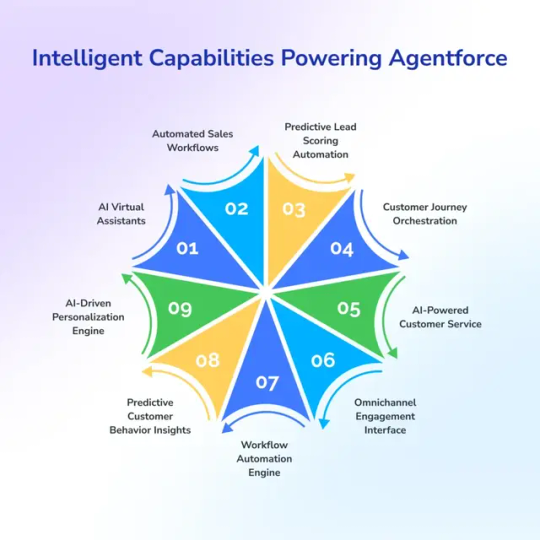
Explore how Agentforce AI CRM software streamlines business workflows with AI-powered sales automation, AI-powered customer service automation, and omnichannel customer support automation—all powered by GetOnCRM’s Salesforce integration services.
#agentforce ai crm software#smarter crm automation#salesforce integration services#ai-powered crm solutions#intelligent sales automation crm#ai customer service automation#omnichannel crm support tools#predictive lead scoring crm#salesforce service cloud integration#getoncrm agentforce crm services#Ask ChatGPT
0 notes
Text
Agentforce CRM vs. Legacy Systems: Why AI-Powered CRM Is the Future of Sales and Support
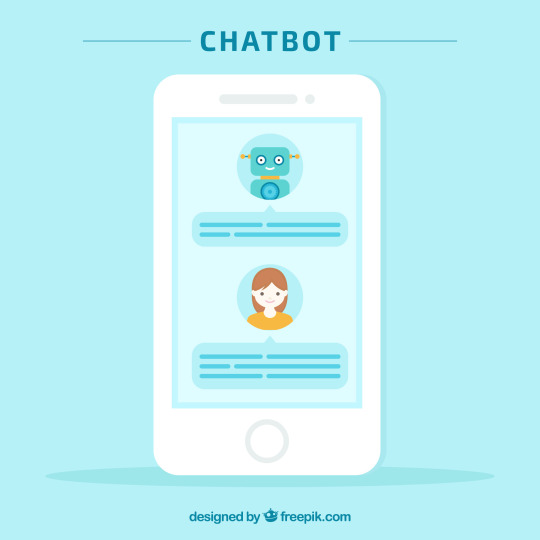
If your team still relies on legacy CRM systems for managing customer relationships, chances are, they’re struggling with slow processes, disconnected channels, and repetitive manual tasks. What worked 10 years ago simply isn’t enough in 2025. That’s why more companies are switching to Agentforce AI CRM software—an advanced solution designed to deliver AI-powered sales automation and AI-driven customer service tools that legacy systems simply can’t match.
Here’s the reality: manual lead scoring and traditional support ticketing slow down business. Agentforce CRM services, powered by Salesforce integration services, eliminate these outdated methods. With intelligent virtual assistants, automated sales workflows, and predictive customer behavior analysis, sales teams can close deals faster, and support agents can resolve issues in real time.
Unlike legacy platforms, Agentforce AI CRM software doesn’t just store data—it actively learns from it. For example, retail businesses can use Salesforce Health Cloud services for customer insights, while finance companies benefit from predictive lead scoring automation built into AI CRM software. Even industries like healthcare and manufacturing now rely on automation for customer service across multiple channels to handle inquiries via chat, email, voice, and social platforms.
The shift is simple: businesses today demand faster service, personalized sales journeys, and smarter systems. GetOnCRM’s Agentforce CRM services help companies make that shift, combining Salesforce Service Cloud services with AI-powered CRM tools that are scalable and future-ready.
If your sales and support teams continue to rely on manual processes and fragmented platforms, it's time to upgrade.
Are you curious about how Agentforce CRM surpasses legacy systems? read the blog.
#agentforce ai crm vs legacy crm systems#ai-powered crm software for sales and support#smarter crm automation with agentforce crm#salesforce integration services for ai crm#best crm automation tools for modern businesses#salesforce health cloud services provider#omnichannel customer service automation crm#predictive lead scoring automation with agentforce#getoncrm agentforce crm services
0 notes
Text
#salesforce#salesforce cloud#CRM#CRM platform#customer service#Features of Salesforce#manage customer interactions#Service Cloud#Marketing Cloud#Commerce Cloud#Einstein AI#Analytics Cloud#Community Cloud#Mobile App#Operational Efficiency#Scalability#Security
0 notes
Text
Is your customer service slowing down your business growth? With Algoworks + Salesforce Service Cloud, you can streamline workflows, leverage AI-powered agents, and deliver seamless customer experiences that build lasting relationships.
Ready to transform your service and drive growth?
Visit algoworks.com/salesforce to get started today!
1 note
·
View note
Text
Microsoft Empowers Customers to Build AI Agents for Routine Tasks
Microsoft is gearing up to let its customers create their own AI agents next month, and it’s a big deal! This is a total game changer from the usual chatbots. These new agents will need very little human help, which means businesses can breeze through their usual tasks a lot faster. What Are Autonomous AI Agents? Unlike basic chatbots that just answer specific questions, these cool autonomous…
#AI in business#AI Innovation#Autonomous Agents#Big corporates#Brad Smith#Business Efficiency#Business solutions#Cloud Infrastructure#Co-pilot Studio#customer service operations#data center hubs in Europe#Digital Transformation#Giorgia Meloni#increase business productivity#Italy#McKinsey & Co#Microsoft AI#sales businesses#Salesforce#small businesses#Tech Investment#the Mediterranean
0 notes
Text
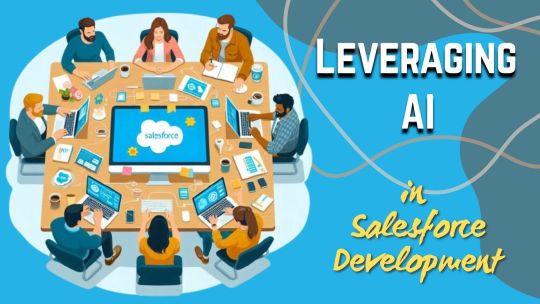
Leveraging AI in Salesforce Development
Artificial Intelligence (AI) is revolutionizing Salesforce development by infusing intelligence into traditional CRM processes. AI allows Salesforce to evolve from a static data management platform into a dynamic, insight-driven system that can predict, recommend, and automate key functions. With AI, Salesforce development is now more about building solutions that are not just reactive but proactive.
Know more at: https://www.cyberswift.com/blog/leveraging-ai-in-salesforce-development/
#generative ai in salesforce#salesforce ai cloud#salesforce einstein gpt#ai-powered crm solutions#bill cipher#salesforce automation with ai#predictive analytics in salesforce#ai-driven customer insights#ai-enhanced salesforce workflows#salesforce lightning and ai integration#chatbots and salesforce crm#salesforce consulting services#salesforce crm solutions#custom salesforce development#salesforce lightning development#salesforce app development#salesforce api integration#salesforce cloud services#salesforce automation solutions#salesforce migration services#salesforce support and maintenance#low-code salesforce development#ai-powered salesforce solutions#iot integration with salesforce#salesforce blockchain integration
1 note
·
View note
Text
Explore how cloud migration services, cloud platform development, cloud application development, custom AI solutions, and custom Salesforce development solutions converge to drive business transformation and innovation in the digital era.
#cloud migration service#cloud platform development#cloud application development#custom ai and machine learning solutions#custom ai solutions#custom salesforce development solutions#certified salesforce experts
0 notes
Text
#Customer Relationship Management Software#Salesforce Einstein AI Products#Salesforce CRM Development Services#Salesforce Registered Consulting Partner
1 note
·
View note
Text
Before Duolingo wiped its videos from TikTok and Instagram in mid-May, social media engagement was one of the language-learning app’s most recognizable qualities. Its green owl mascot had gone viral multiple times and was well known to younger users—a success story other marketers envied.
But, when news got out that Duolingo was making the switch to become an “AI-first” company, planning to replace contractors who work on tasks generative AI could automate, public perception of the brand soured.
Young people started posting on social media about how they were outraged at Duolingo as they performatively deleted the app—even if it meant losing the precious streak awards they earned through continued, daily usage. The comments on Duolingo’s TikTok posts in the days after the announcement were filled with rage, primarily focused on a single aspect: workers being replaced with automation.
The negative response online is indicative of a larger trend: Right now, though a growing number of Americans use ChatGPT, many people are sick of AI’s encroachment into their lives and are ready to fight back.
When reached for comment, Duolingo spokesperson Sam Dalsimer stressed that “AI isn’t replacing our staff” and said all AI-generated content on the platform would be created “under the direction and guidance of our learning experts.” The company's plan is still to reduce its use of non-staff contractors for tasks that can be automated using generative AI.
Duolingo’s embrace of workplace automation is part of a broad shift within the tech industry. Leaders at Klarna, a buy now, pay later service, and Salesforce, a software company, have also made sweeping statements about AI reducing the need for new hires in roles like customer service and engineering. These decisions were being made at the same time as developers sold “agents,” which are designed to automate software tasks, as a way to reduce the amount of workers needed to complete certain tasks.
Still, the potential threat of bosses attempting to replace human workers with AI agents is just one of many compounding reasons people are critical of generative AI. Add that to the error-ridden outputs, the environmental damage, the potential mental health impacts for users, and the concerns about copyright violations when AI tools are trained on existing works.
Many people were initially in awe of ChatGPT and other generative AI tools when they first arrived in late 2022. You could make a cartoon of a duck riding a motorcycle! But soon artists started speaking out, noting that their visual and textual works were being scraped to train these systems. The pushback from the creative community ramped up during the 2023 Hollywood writer's strike, and continued to accelerate through the current wave of copyright lawsuits brought by publishers, creatives, and Hollywood studios.
Right now, the general vibe aligns even more with the side of impacted workers. “I think there is a new sort of ambient animosity towards the AI systems,” says Brian Merchant, former WIRED contributor and author of Blood in the Machine, a book about the Luddites rebelling against worker-replacing technology. “AI companies have speedrun the Silicon Valley trajectory.”
Before ChatGPT’s release, around 38 percent of US adults were more concerned than excited about increased AI usage in daily life, according to the Pew Research Center. The number shot up to 52 percent by late 2023, as the public reacted to the speedy spread of generative AI. The level of concern has hovered around that same threshold ever since.
Ethical AI researchers have long warned about the potential negative impacts of this technology. The amplification of harmful stereotypes, increased environmental pollution, and potential displacement of workers are all widely researched and reported. These concerns were often previously reserved to academic discourse and online leftists paying attention to labor issues.
As AI outputs continued to proliferate, so did the cutting jokes. Alex Hanna, coauthor of The AI Con and director of research at the Distributed AI Research Institute, mentions how people have been “trolling” in the comment sections of YouTube Shorts and Instagram Reels whenever they see AI-generated content in their feeds. “I've seen this on the web for a while,” she says.
This generalized animosity towards AI has not abated over time. Rather, it’s metastasized. LinkedIn users have complained about being constantly prompted with AI-generated questions. Spotify listeners have been frustrated to hear AI-generated podcasts recapping their top-listened songs. Reddit posters have been upset to see AI-generated images on their microwavable noodles at the grocery store.
Tensions are so high that even the suspicion of AI usage is now enough to draw criticism. I wouldn’t be surprised if social media users screenshotted the em dashes in this piece—a supposed giveaway of AI-generated text outputs—and cast suspicions about whether I used a chatbot to spin up sections of the article.
A few days after I first contacted Duolingo for comment, the company hid all of its social media videos on TikTok and Instagram. But, soon the green owl was back online with a satirical post about conspiracy theories. “I’ve had it with the CEOs and those in power. It’s time we show them who’s in charge,” said a person wearing a three-eyed Duolingo mask. The video uploaded right afterwards was a direct message from the company’s CEO attempting to explain how humans would still be working at Duolingo, but AI could help them produce more language learning courses.
While the videos got millions of views on TikTok, the top comments continued to criticize Duolingo for AI-enabled automation: “Keep in mind they are still using AI for their lessons, this doesn’t change anything.”
This frustration over AI’s steady creep has breached the container of social media and started manifesting more in the real world. Parents I talk to are concerned about AI use impacting their child’s mental health. Couples are worried about chatbot addictions driving a wedge in their relationships. Rural communities are incensed that the newly built data centers required to power these AI tools are kept humming by generators that burn fossil fuels, polluting their air, water, and soil. As a whole, the benefits of AI seem esoteric and underwhelming while the harms feel transformative and immediate.
Unlike the dawn of the internet where democratized access to information empowered everyday people in unique, surprising ways, the generative AI era has been defined by half-baked software releases and threats of AI replacing human workers, especially for recent college graduates looking to find entry-level work.
“Our innovation ecosystem in the 20th century was about making opportunities for human flourishing more accessible,” says Shannon Vallor, a technology philosopher at the Edinburgh Futures Institute and author of The AI Mirror, a book about reclaiming human agency from algorithms. “Now, we have an era of innovation where the greatest opportunities the technology creates are for those already enjoying a disproportionate share of strengths and resources.”
Not only are the rich getting richer during the AI era, but many of the technology’s harms are falling on people of color and other marginalized communities. “Data centers are being located in these really poor areas that tend to be more heavily Black and brown,” Hanna says. She points out how locals have not just been fighting back online, but have also been organizing even more in-person to protect their communities from environmental pollution. We saw this in Memphis, Tennessee, recently, where Elon Musk’s artificial intelligence company xAI is building a large data center with over 30 methane-gas-powered generators that are spewing harmful exhaust.
The impacts of generative AI on the workforce are another core issue that critics are organizing around. “Workers are more intuitive than a lot of the pundit class gives them credit for,” says Merchant. “They know this has been a naked attempt to get rid of people.” The next major shift in public opinion will likely follow previous patterns, occurring when broad swaths of workers feel further threatened and organize in response. And this time, the in-person protests may be just as big as the online backlash.
185 notes
·
View notes
Text
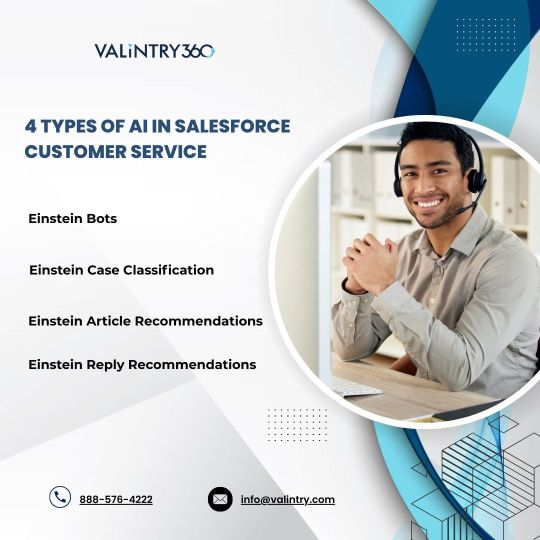
Enhance customer satisfaction with AI in Salesforce Customer Service, powered by VALiNTRY360. Our intelligent solutions use AI-driven chatbots, predictive case routing, and automated responses to deliver faster, more personalized support. By leveraging real-time analytics and natural language processing, we help your team anticipate customer needs and resolve issues efficiently. With VALiNTRY360, businesses can reduce response times, increase agent productivity, and elevate the overall service experience. Whether it’s streamlining support processes or offering 24/7 assistance, our AI-enhanced Salesforce solutions ensure your customers receive exceptional care at every touchpoint. Transform customer service into a powerful growth driver with us.
For more info visit us https://valintry360.com/ai-customer-service-solutions
0 notes
Text
Smart Salesforce CRM AI Agent Drives 60% More Leads and 24/7 Engagement.
A Salesforce consulting firm implemented an AI-powered website assistant using Agentforce, directly integrated with Salesforce CRM. This conversational agent handles real-time product queries, schedules meetings across time zones, and captures high-intent leads—resulting in a 60% rise in qualified leads, 70% reduction in missed inquiries, and 40+ meetings auto-scheduled in one month. This solution is particularly beneficial for small to mid-sized B2B companies that utilize WordPress and Salesforce.
#Salesforce CRM#Agentforce#AI Chatbot for B2B#GetOnCRM#Salesforce Lead Generation#CRM Automation#Customer Service AI#AI Meeting Scheduler#Salesforce WordPress Integration#24/7 AI Assistant#B2B CRM Bot#Salesforce for SMBs#Smart AI Agent#Sales Enablement Tools#Conversational AI for Sales
1 note
·
View note
Text
B2B PPC in 2025: Smarter Lead Gen with AI and Intent Data

B2B advertisers have long been at odds with Google Ads. The high CPCs, long sales cycles, and poor-quality leads made it feel like a leaky funnel. But in 2025, that’s changing — fast.
With smarter AI, intent modelling, and CRM integration, B2B PPC in New Zealand and Australia is entering a new era of performance-led lead generation. The brands that embrace this shift are generating more pipeline, with less waste.
This blog explores what’s working now in B2B Google Ads, how to avoid common pitfalls, and why AI + intent data are changing everything.
Why B2B Needs a Different Strategy
B2B marketing is not e-commerce. Buyers don’t convert in a single click. Decision-making is slower, multi-stakeholder, and higher value.
2025 challenges include:
CPCs exceeding NZ$7.00 in legal, SaaS, or finance niches
Form-fills that don’t convert into sales
Lack of clarity between MQLs, SQLs, and true pipeline
To win, B2B advertisers must align media strategy with intent — and feed real conversion data back into the platform.
Smart Use of AI in B2B PPC
Smart Bidding with Offline Conversions: Link your CRM (like HubSpot or Salesforce) to Google Ads to pass back real revenue data.
Use Broad Match with Signals: Let Google’s AI expand reach — but guided by audience and keyword intent.
Performance Max with Precise Inputs: Create campaign structures based on service tiers, pain points, or use cases.
Responsive Search Ads with ABM Messaging: Build modular messaging that speaks to industries or roles.
Intent Data Is Your Competitive Advantage
Generic lead gen campaigns are no longer effective. B2B advertisers winning in 2025 are:
Using Customer Match lists from sales-qualified leads
Creating lookalikes based on CRM close data
Running remarketing to high-value content page visitors
Prioritising keywords that reflect high intent, not just high volume
Case Study – Auckland-Based B2B SaaS
A mid-sized SaaS company targeting finance teams across NZ used to run lead-gen ads driving eBook downloads. Leads were cheap, but MQL-to-SQL rates were under 4%.
They rebuilt their campaigns using:
Performance Max asset groups for each service module
Customer Match with closed deals
Offline conversion tracking tied to CRM stages
Result? 63% increase in pipeline-qualified leads within 90 days — with 22% lower CPA.
Top Tips for NZ & AU B2B Advertisers in 2025
Feed Google real sales data (not just form-fills)
Run branded campaigns to protect SERP real estate
Break up broad services into niche campaigns
Use remarketing lists built on behaviour (not just page visits)
Layer search with YouTube explainer videos for trust and education
Final Thoughts
B2B PPC in 2025 is smarter, faster, and more accountable — but only if you feed the machine with the right data. For NZ and AU marketers, this means treating Google Ads not as a volume game, but as an intent-led revenue engine.
With the right structure and strategy, even high-CPC industries can generate serious pipeline — efficiently and at scale.
At Metrics Media, we help NZ and AU B2B marketers scale smarter — using intent signals, AI, and CRM data to drive real pipeline.
📧 Book your lead generation audit today: [email protected]
Source URL- https://shorturl.at/nEWro
Contact us
361 New North Road, Kingsland. Auckland. New Zealand 0800 39 49 39
2 notes
·
View notes
Text
Agentforce in Action at Salesforce Agentforce Tour in New York
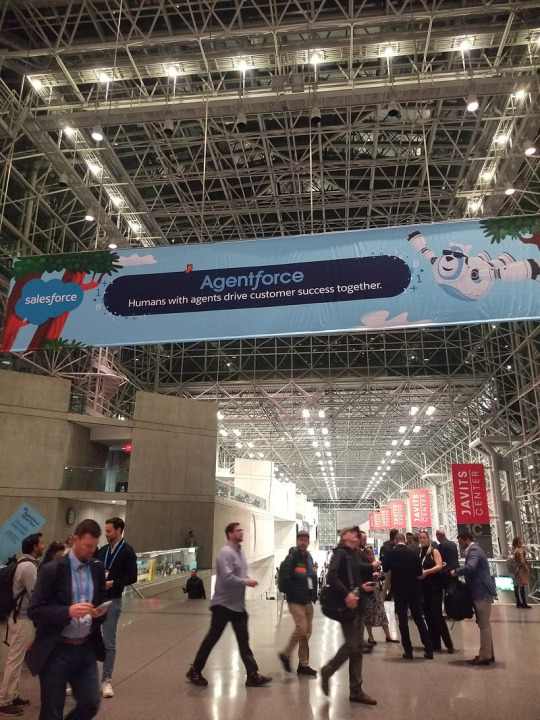
I covered Salesforce AgentForce in New York this past week. This event was organized to showcase Salesforce’s new product Agentforce which is DIY AI in action. Agentforce is a customer service agent that can be built by Salesforce customers and integrated into all industries across the customer journey.

Salesforce Co-Founder & Chief Technology Officer, Slack Parker Harris kicks off the Keynote in New York!
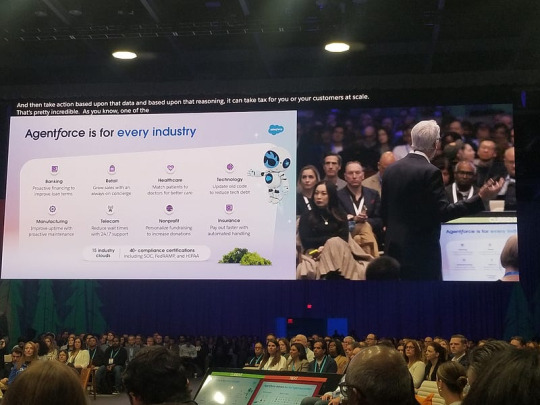
Users of Salesforce Foundation Enterprise Edition and higher can upgrade to Agentforce for free!
Customers could build a customer service agent on-site.

youtube
Salesforce hosted a hackathon where the winner of the Agentforce contest won $20000!
The keynote showed how service and customer success functions have evolved from chatbots to copilots to Agentforce a self-designable customer service agent that can be customized to users' specific needs across the customer journey, increasing productivity, reducing customer friction, and maximizing the customer experience.
Patrick Stokes EVP of Product & Industries Marketing at Salesforce, shows how he exchanged his sweater for the right size using Sofie and a customer service agent Saks Fifth Avenue built using Agentforce.
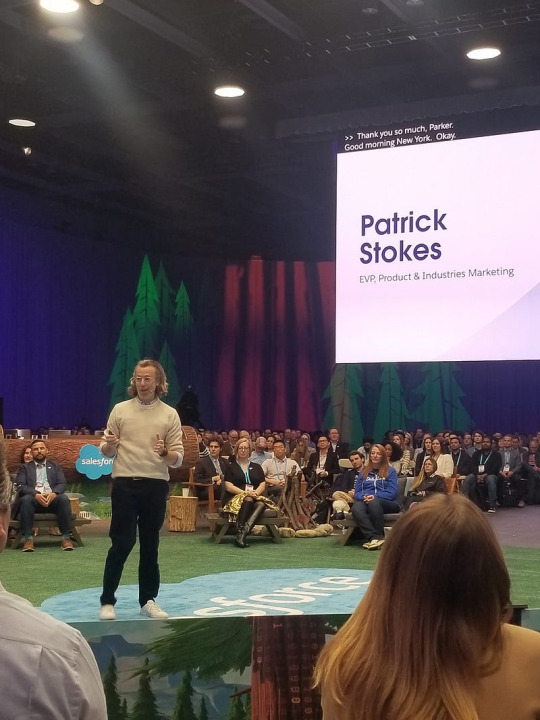
Patrick Stokes

youtube
I saw multiple demos of Agentforce across Sales, Marketing, Service and, more.
youtube
youtube
youtube
Salesforce announced the launch of the Testing Center for Agentforce; coming this December, which will allow users to develop Agentforce to answer every possible question in all forms and variations; something the current chatbots and copilots can’t do. Agentforce enables users to take proactive prescriptive action in real-time.
youtube
youtube
AgentforceTour was a great event. I learned much about DIY AI and how it can transform the customer experience.
I want to thank Salesforce for having me at Agentforce Tour.
If you want to be on the cutting edge of DIY AI, attend Agentforce in your city.
Have you used Agentforce?
Share your experience in the comments.
Additional pictures can be found on Instagram.
#agentforce#agentforcetour#sales#service#marketing#ecommerce#tech#technology#salesforce#ai#customer service#customer experience#custexp#CX#Customer Success#technews#Youtube
1 note
·
View note
Text
What is conversational AI, and what are its benefits?
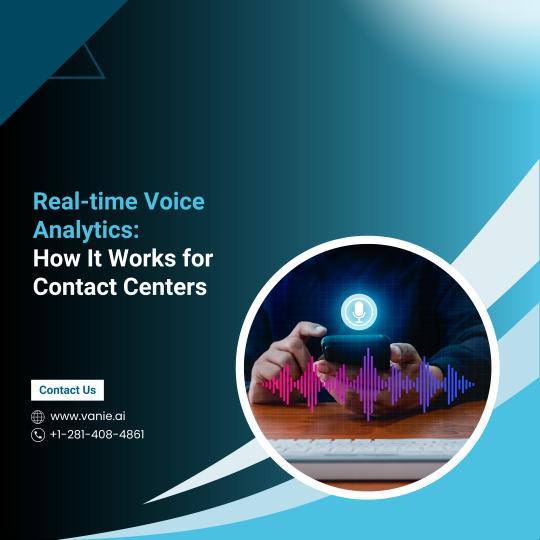
Conversational AI is technology that allows businesses to interact with customers through automated, natural language conversations. It utilizes a combination of natural language processing (NLP), machine learning, and speech recognition to understand and respond to customer questions in real-time—whether over voice calls, chat, or messaging platforms.
For organizations focused on efficiency and growth, conversational AI is proving to be a critical investment. The benefits extend across cost, customer experience, sales and decision-making.
Key business benefits of conversational AI
1.Significant cost savings
Conversational AI can resolve up to 80% of standard customer queries, reducing the burden on human agents. IBM reports businesses spend more than $1.3 trillion annually to handle customer requests, and conversational AI can cut these costs by as much as 30%. This makes it a powerful tool for managing budgets without sacrificing service quality.
2.Better customer experiences
Customers expect quick, accurate answers—often around the clock. Conversational AI delivers immediate, consistent responses 24/7. A PwC study shows 73% of customers point to experience as a top driver of their buying decisions. AI ensures these interactions meet expectations, increasing satisfaction and long-term loyalty.
3.Boosted sales and revenue opportunities
Conversational AI doesn’t just resolve support tickets; it also captures buying signals, qualifies leads and suggests relevant products or upgrades. According to Salesforce, 51% of sales leaders are already using AI tools to gain deeper customer insights that fuel growth.
4.Smarter, data-driven decisions
Every conversation processed by AI becomes a data point. Over time, this builds a rich view of customer sentiment, preferences and emerging needs. Businesses can use these insights to adjust product strategies, refine messaging, or improve service operations—all backed by real interaction data.
5.Scalability without added strain
Conversational AI is capable of engaging thousands of customers in simultaneous conversations, unlike human teams who are working in shifts and limited by a number of people. This scalability is necessary when high demand or fast-growth exists. It helps customers to get the help they need on time, and the voice of the brand remains the same.
Where Conversation Intelligence comes in
Conversational AI also sets the stage for advanced tools like Conversation Intelligence. This technology analyzes conversations to reveal patterns, identify compliance issues, and pinpoint what drives successful outcomes.
Companies that use platforms such as Vanie’s Conversation Intelligence turn these insights into clear business actions. They improve agent coaching, close more deals, and keep customer interactions aligned with overall strategy. This transforms everyday conversations into a measurable advantage—driving higher margins and stronger customer relationships.
2 notes
·
View notes
Text
The Secret to Unlocking 40% Growth in Engineering
In the dynamic world of engineering, thriving isn’t about working harder — it’s about working smarter. The advent of Industry 4.0 is revolutionizing how businesses operate, with cutting-edge technologies like AI, IoT, and automation reshaping the landscape. For engineering firms, digital transformation means more than adopting new tools; it’s about unlocking untapped potential. Picture streamlined processes, data-driven decisions, and a competitive edge in the market. It’s not just about adapting to change but leveraging it to deliver remarkable results for your team and customers.
Are you ready to embrace innovation and grow exponentially?
1. The Hidden Costs of Outdated IT Systems
Legacy IT systems may seem dependable, but they come with hidden drawbacks that can hinder growth:
Growth Bottlenecks: According to Forbes, 87% of engineering firms face delays due to outdated systems.
Missed Innovations: Gartner research shows modern tools increase innovation success rates by 20%, an edge legacy systems fail to provide.
2. Common Pain Points in Engineering Firms
Engineering companies encounter persistent challenges that slow them down:
Inefficiency: McKinsey estimates a 10% productivity loss from manual processes.
Collaboration Gaps: Salesforce highlights that siloed data hampers teamwork by 33%.
System Downtime: Frequent failures in aging systems lead to delays and missed deadlines, affecting client satisfaction.
3. Transforming Challenges into Opportunities
The right digital solutions can turn these hurdles into growth opportunities. By upgrading IT infrastructure and adopting modern approaches, engineering firms can achieve:
Cloud Migration: Transitioning to platforms like AWS, Azure, or Google Cloud can deliver 30–40% cost savings and enhanced scalability.
AI and Machine Learning: Integrating AI-driven predictive analytics improves operational efficiency by 25–30%.
Product Engineering Services: Tailored software solutions streamline operations and cut costs by up to 35%.
4. Enhanced Security and Compliance
Outdated systems are prime targets for costly security breaches. Adopting advanced security protocols reduces vulnerabilities by up to 60%, protecting sensitive data and maintaining your business’s reputation.
5. The ROI of Digital Transformation
Modernizing your IT infrastructure is more than a technology upgrade — it’s a strategic investment that pays off:
Reduce operational inefficiencies by 30–35%.
Boost system performance by 25–30%.
Lower maintenance costs by 20–25%.
Curious to Learn More? Discover how a well-planned digital transformation can help engineering firms overcome challenges, achieve sustainable growth, and stay ahead in an ever-changing market. Take the leap into the future and unlock your firm’s full potential today!
3 notes
·
View notes